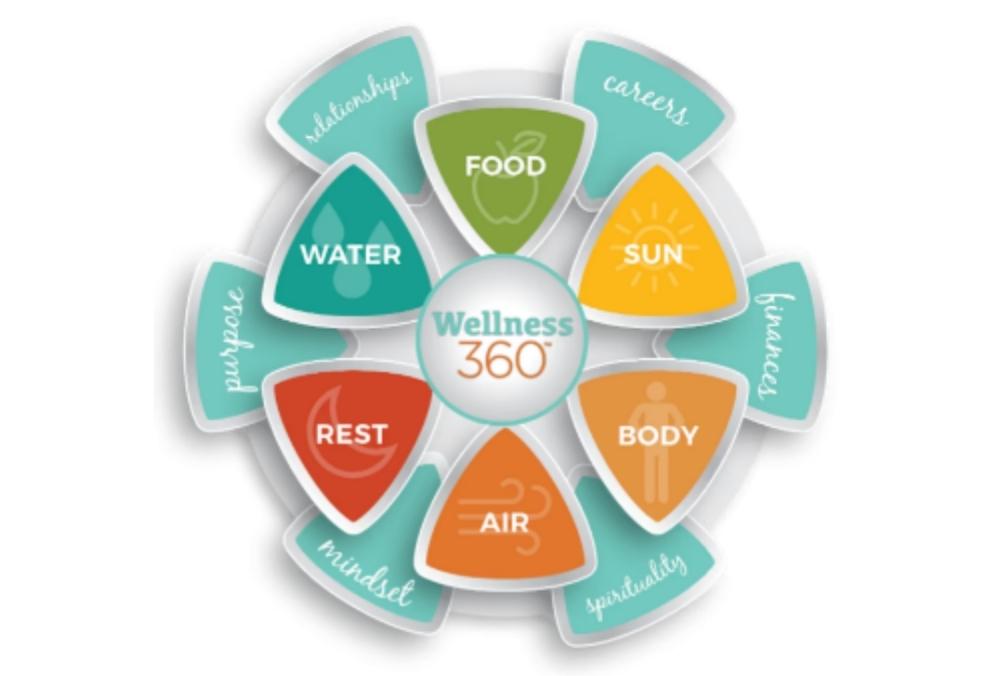Boussole
Wellness
Blog
Boussole Wellness
Blog
Let’s navigate the journey from burnout to blissful balance together!
Learn how I turned exhaustion into empowerment, and am now living a life full of energy and love.

Get Some Sleep Already!
My visit to the doctor for my annual check-up last week didn’t quite go as expected. I wanted to talk about perimenopause because, at almost 45 years old, I’m starting to have many symptoms: irregular periods, night sweats, irritability, brain fog, mood swings, migraines… It hasn’t been a lot of fun lately.
She asked about my sleep and, as with many parents of toddlers, mine is not great. He’s teething, which always seems to bother him more at night. And because my partner is a shift worker and is also frequently sleep-deprived, I get up with the little one to soothe and comfort (and suffer the occasional head butt #iykyk).
Before kids, sleep wasn't something I thought much about. For most of my life, keeping a pretty regular bedtime and getting about 8 hours a night was easy enough. If I had a bad night or two, it was easy to catch up on the weekend.
But, as my doctor pointed out, I’ve been sleep-deprived for over 15 months now, as my little charge doesn’t sleep through the night (yet!).
Turns out 60% of women don’t get the recommended 7-9 hours of sleep a night.
This is for several reasons, including children, pets, pregnancy, hot flashes, night sweats, or insomnia.
This lack of sleep can have a significant impact on women’s mental and physical health, personal lives, and professional work.
Not getting enough sleep negatively impacts all other aspects of our lives. It can make us more irritable and less patient with others, affecting our personal and professional relationships. It can make us more likely to skip a workout or choose our favourite comfort food over healthier options, affecting how we feel about ourselves.
And from what I’ve gleaned from researching perimenopause, sleep is a key factor in helping reduce symptoms. It helps balance hormone levels, which is essential for perimenopausal women (like me!).
Getting enough sleep may also help lower cortisol levels and high cortisol levels have been associated with chronic sleep problems, including sleep apnea and insomnia.
It also can help us handle stress better, deal with difficult situations, and cope with everything else life throws your way.
Sleep is a fundamental pillar in our wellness foundation and one of the six non-negotiable self-care practices my students learn inside Burnout to Bliss.
As women, we need to make getting enough quality sleep a priority, which isn't always easy. But, I promise you can do it using the simple strategies I'm going to share with you. So, let's start with some sleep basics.
Create Daily, Healthy Habits that are Sustainable
Get daylight exposure. Light, especially sunlight, drives our circadian rhythms that encourage quality sleep.
Be physically active. Not only does it close the stress cycle, but it also promotes better nighttime sleep.
Don’t smoke. Nicotine stimulates the body, disrupting sleep.
Reduce alcohol consumption. Alcohol may make it easier to fall asleep, but the effect wears off, disrupting sleep later in the night.
Cut down on afternoon caffeine. Be aware if you’re consuming lots of caffeine to make up for lack of sleep.
Don’t eat late. Eating a late dinner, especially if it’s a big, heavy, or spicy meal, can mean you’re still digesting when it’s time for bed.
Keep your bedroom for sleep and sex. TV (and other devices) can all negatively impact your sleep and are best left in another room.
Optimize Your Bedroom
Invest in a comfortable mattress and pillow. Do your research before buying and find what best suits you.
Splurge on good bedding. You spend a lot of time in bed and deserve to enjoy sheets that feel good.
Wear moisture wicking pyjamas. If you are a hot sleeper (or suffer from night sweats like me!), I have heard they are worth it.
Set a cool yet comfortable temperature (around 18˚Celsius/65˚Fahrenheit).
Block out light. Get black-out shades or curtains for the windows or use a sleep mask.
Drown out noise. Try a white noise machine to lull you to sleep, or use earplugs.
Give aromatherapy a try. Some scents, such as lavender, may induce a calmer state of mind and help cultivate a positive space for sleep.
Stick to a Consistent Sleep Schedule
Have a fixed wake-up time. Getting up at the same time every day helps you get into the rhythm of consistent sleep.
Prioritize sleep. Don’t skip sleep in order to work, study, socialize, or exercise.
Calculate your target bedtime. Based on your fixed wake-up time (remember, you want 7-9 hours of quality sleep), determine what time you need to get to bed.
Make gradual adjustments. Start with small adjustments for a few nights to help you settle into a new routine.
Don’t rely on naps. Keep naps relatively short and limited to the early afternoon.
Follow a Nightly Routine
Keep your routine consistent. Doing the same thing every night lets your mind know it’s bedtime.
Turn the lights on low. Bright lights can hinder the production of melatonin, a hormone that facilitates sleep, so turn the lights down an hour before bedtime.
Unplug from electronics. Turn off all devices 30-60 minutes before bed as they can cause mental stimulation that makes sleep more difficult.
Use your favourite relaxation technique. Meditation, mindfulness, deep breathing, and other relaxation techniques can help you wind down for bed.
Don’t toss and turn. If you’re still lying awake 20 minutes after you’ve shut the lights off, get up and stretch, read, or do another calming activity in low light before trying to fall asleep again.
Some sleep issues, like insomnia, may need the help of a medical professional. Chronic insomnia can be caused by a psychological condition, such as depression or anxiety, or a medical condition, such as acid reflux, pregnancy, or menopause.
If you suffer from insomnia, keep a sleep diary to track your sleeping and talk to your family doctor to help improve your sleep.
My toddler’s sleep will settle soon as he has almost all of his teeth. As for me, I’ll work on being more consistent with my sleep schedule and finding pyjamas that help me deal with my night sweats.
What will you do to improve your sleep habits this week?
Developing and maintaining good sleep habits is one of the fundamental pillars Burnout to Bliss supports women in achieving.
Getting enough quality sleep is essential to your health and wellness—are you getting it? If you’re not (or you’re not sure), I invite you to check out the program and how it can help guide you to living a life of bliss!

Get Some Sleep Already!
My visit to the doctor for my annual check-up last week didn’t quite go as expected. I wanted to talk about perimenopause because, at almost 45 years old, I’m starting to have many symptoms: irregular periods, night sweats, irritability, brain fog, mood swings, migraines… It hasn’t been a lot of fun lately.
She asked about my sleep and, as with many parents of toddlers, mine is not great. He’s teething, which always seems to bother him more at night. And because my partner is a shift worker and is also frequently sleep-deprived, I get up with the little one to soothe and comfort (and suffer the occasional head butt #iykyk).
Before kids, sleep wasn't something I thought much about. For most of my life, keeping a pretty regular bedtime and getting about 8 hours a night was easy enough. If I had a bad night or two, it was easy to catch up on the weekend.
But, as my doctor pointed out, I’ve been sleep-deprived for over 15 months now, as my little charge doesn’t sleep through the night (yet!).
Turns out 60% of women don’t get the recommended 7-9 hours of sleep a night.
This is for several reasons, including children, pets, pregnancy, hot flashes, night sweats, or insomnia.
This lack of sleep can have a significant impact on women’s mental and physical health, personal lives, and professional work.
Not getting enough sleep negatively impacts all other aspects of our lives. It can make us more irritable and less patient with others, affecting our personal and professional relationships. It can make us more likely to skip a workout or choose our favourite comfort food over healthier options, affecting how we feel about ourselves.
And from what I’ve gleaned from researching perimenopause, sleep is a key factor in helping reduce symptoms. It helps balance hormone levels, which is essential for perimenopausal women (like me!).
Getting enough sleep may also help lower cortisol levels and high cortisol levels have been associated with chronic sleep problems, including sleep apnea and insomnia.
It also can help us handle stress better, deal with difficult situations, and cope with everything else life throws your way.
Sleep is a fundamental pillar in our wellness foundation and one of the six non-negotiable self-care practices my students learn inside Burnout to Bliss.
As women, we need to make getting enough quality sleep a priority, which isn't always easy. But, I promise you can do it using the simple strategies I'm going to share with you. So, let's start with some sleep basics.
Create Daily, Healthy Habits that are Sustainable
Get daylight exposure. Light, especially sunlight, drives our circadian rhythms that encourage quality sleep.
Be physically active. Not only does it close the stress cycle, but it also promotes better nighttime sleep.
Don’t smoke. Nicotine stimulates the body, disrupting sleep.
Reduce alcohol consumption. Alcohol may make it easier to fall asleep, but the effect wears off, disrupting sleep later in the night.
Cut down on afternoon caffeine. Be aware if you’re consuming lots of caffeine to make up for lack of sleep.
Don’t eat late. Eating a late dinner, especially if it’s a big, heavy, or spicy meal, can mean you’re still digesting when it’s time for bed.
Keep your bedroom for sleep and sex. TV (and other devices) can all negatively impact your sleep and are best left in another room.
Optimize Your Bedroom
Invest in a comfortable mattress and pillow. Do your research before buying and find what best suits you.
Splurge on good bedding. You spend a lot of time in bed and deserve to enjoy sheets that feel good.
Wear moisture wicking pyjamas. If you are a hot sleeper (or suffer from night sweats like me!), I have heard they are worth it.
Set a cool yet comfortable temperature (around 18˚Celsius/65˚Fahrenheit).
Block out light. Get black-out shades or curtains for the windows or use a sleep mask.
Drown out noise. Try a white noise machine to lull you to sleep, or use earplugs.
Give aromatherapy a try. Some scents, such as lavender, may induce a calmer state of mind and help cultivate a positive space for sleep.
Stick to a Consistent Sleep Schedule
Have a fixed wake-up time. Getting up at the same time every day helps you get into the rhythm of consistent sleep.
Prioritize sleep. Don’t skip sleep in order to work, study, socialize, or exercise.
Calculate your target bedtime. Based on your fixed wake-up time (remember, you want 7-9 hours of quality sleep), determine what time you need to get to bed.
Make gradual adjustments. Start with small adjustments for a few nights to help you settle into a new routine.
Don’t rely on naps. Keep naps relatively short and limited to the early afternoon.
Follow a Nightly Routine
Keep your routine consistent. Doing the same thing every night lets your mind know it’s bedtime.
Turn the lights on low. Bright lights can hinder the production of melatonin, a hormone that facilitates sleep, so turn the lights down an hour before bedtime.
Unplug from electronics. Turn off all devices 30-60 minutes before bed as they can cause mental stimulation that makes sleep more difficult.
Use your favourite relaxation technique. Meditation, mindfulness, deep breathing, and other relaxation techniques can help you wind down for bed.
Don’t toss and turn. If you’re still lying awake 20 minutes after you’ve shut the lights off, get up and stretch, read, or do another calming activity in low light before trying to fall asleep again.
Some sleep issues, like insomnia, may need the help of a medical professional. Chronic insomnia can be caused by a psychological condition, such as depression or anxiety, or a medical condition, such as acid reflux, pregnancy, or menopause.
If you suffer from insomnia, keep a sleep diary to track your sleeping and talk to your family doctor to help improve your sleep.
My toddler’s sleep will settle soon as he has almost all of his teeth. As for me, I’ll work on being more consistent with my sleep schedule and finding pyjamas that help me deal with my night sweats.
What will you do to improve your sleep habits this week?
Developing and maintaining good sleep habits is one of the fundamental pillars Burnout to Bliss supports women in achieving.
Getting enough quality sleep is essential to your health and wellness—are you getting it? If you’re not (or you’re not sure), I invite you to check out the program and how it can help guide you to living a life of bliss!
“Keep good company, read good books, love good things, and cultivate soul and body as faithfully as you can.”
~ Louisa May Alcott
Connect
© Copyright 2026 Boussole Wellness Coaching | Helping women find more balance and feel more fulfilled!
Photography by Christina Louise Branding









